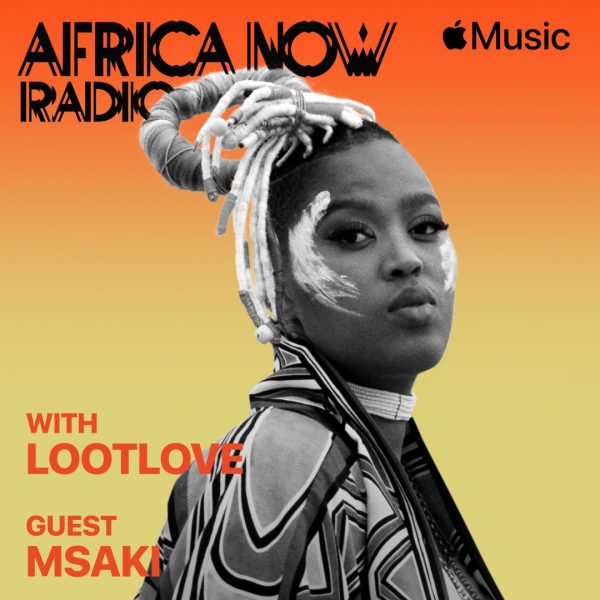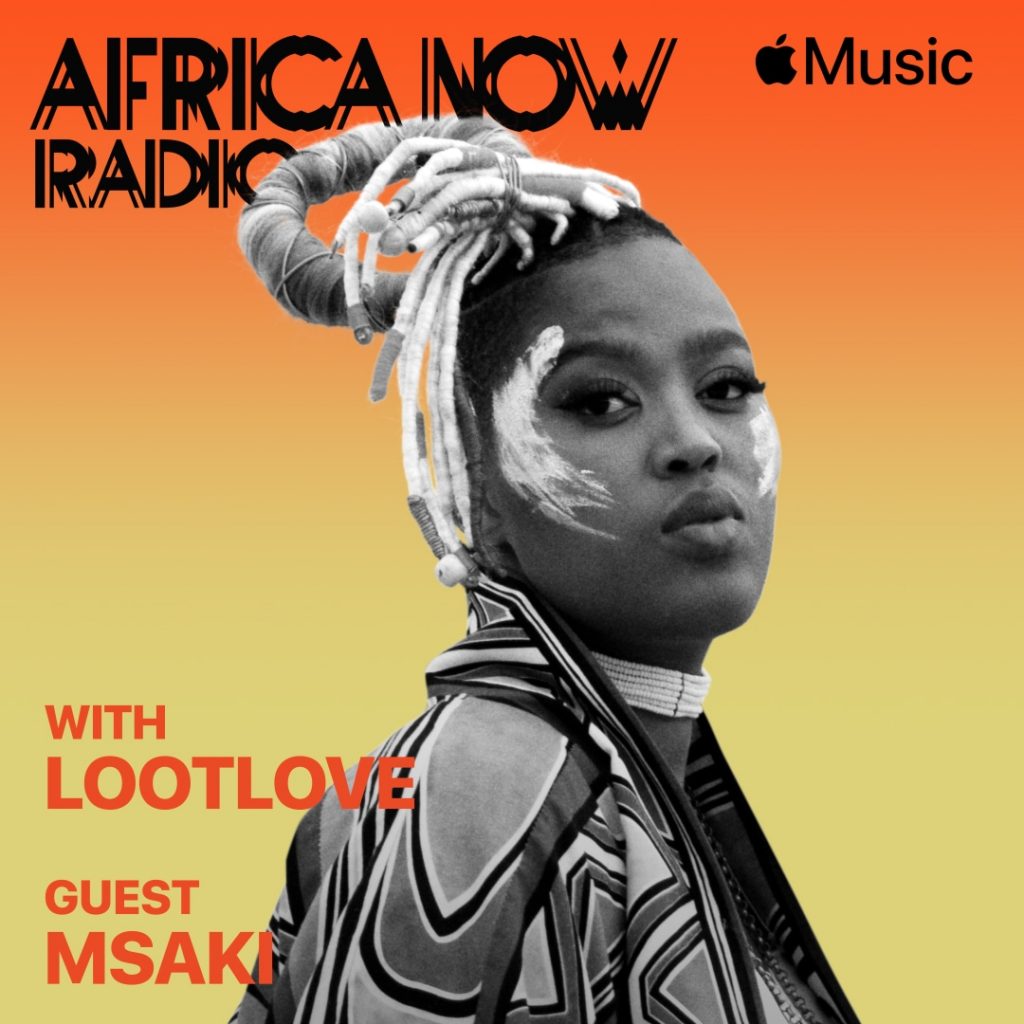
This Week’s Episode Features a Conversation With Msaki, the 5 Hottest Tracks of the Week, Africa Rising, and LootLove’s Favourite Track of the Week
South African singer-songwriter and multi-talented creative Msaki joins LootLove via FaceTime on Apple Music 1 to talk about her latest collaboration with Sun-El Musician & Diplo, “Tomorrow Silver.” She also discusses her two new albums, Platinumb Heart Beating and Platinumb Heart Open, and how working on two albums simultaneously helped her tackle themes of love and of protest, how her sound has evolved, and how she found her place in the world of electronic music.
The Big 5
LootLove shares the 5 hottest new African tracks of the moment. This week’s selection includes new tracks from Davido & Focalistic; Kizz Daniel; Djodje; KiddBlack, Blak Sherif & DJ FortuneDJ; and Kabza De Small & DJ Maphorisa feat. Ami Faku.
Africa Rising
South African R&B singer-songwriter Filah Lah Lah—Apple Music’s latest Up Next: South Africa cover star—is the latest artist featured from the Africa Rising playlist, a campaign which shines a light on the next generation of African superstars, and this week’s show features her two singles, “Real Love” and “This Is.” Listen HERE.
Loot Loves
Each week, LootLove chooses her favourite track, taken from one of Apple Music’s African playlists. This week she features Ghanaian singer-songwriter Gyakie and her single, “NEED ME,” from Apple Music’s Ghana Bounce playlist. Listen HERE—and find a roundup of all LootLove’s selections on Apple Music’s LootLoves playlist, HERE.
Tune in and listen to the full episode this Sunday, November 21st at 2p London / 3p Lagos/Paris / 4p Johannesburg / 6a LA / 9a NYC on Apple Music 1 at apple.co/_AfricaNow.
*
MSAKI EXPLAINS THE FIVE-YEAR WAIT SINCE HER LAST ALBUM
Today I know why you take five years in between the albums! I’m exhausted, I’m spent, I’m completely shattered, I’m tired in the best way. I’ve poured out everything that I can actually give away right now, so I’m okay with the fact that some of the things I have to say do for a little bit longer, and the fact that I tried a lot of my work in front of people, and then I made it morph, and then I start again, and then I recalibrate emotionally what I want to say. Five years is actually just enough time to do that, in a way that makes sense to me and the things that I’ve been processing.
MSAKI ON WHY TWO ALBUMS MADE SENSE FOR HER RIGHT NOW
All the house songs are a big part of my life now because I started off just as the invitee, as a collaborator, as a visitor… but I’ve really fallen in love with this journey of being in this electro-dance space because I feel like I can still show up with the songs in my journal. I can still show up with my cryptic poems in that space too. I don’t feel like I’m shrinking myself, I don’t feel like I’m not heard. On the contrary, my poems get heard by a lot more people, and some of them come over to my indie-folk, afro-folk side, and stay. It’s also a way for me to say, I can be both those people, which is why having these two albums really makes sense for me right now.
MSAKI ON WRITING ‘BLOOD, GUNS AND REVOLUTIONS’ ABOUT THE MARIKANA MASSACRE
I started writing the first song on this project because of the platinum belt. I’m actually not so far from Rustenburg right now, Marikana is a couple kilometers away from where I am right now. That’s the first song I wrote as the rest response to what was going on in South Africa at the time, in absolute shock. As a person who grew up in a supposed rainbow nation and a hopeful tomorrow, that was a heartbreak moment for me, so every song since then has been an attempt to understand the political and historical and this neo-colonial capitalist world we’re living in. I was feeling it on a personal level, but also just trying to work through the songs, as questions like, how are we still here?
MSAKI ON HOW SHE CAME TO MAKE A HOUSE ALBUM
A lot of the collaborators, especially the producers from the house world, they were just return favours – I had been able to be on their projects, and when they heard that I was making an album, a lot of them assumed I was making house and sent me stuff.
At the beginning, I wasn’t making a house album at all. It just started happening where I found myself trying to split myself. “When am I going to release this?” I had this combination of these songs that we’re building, but I had been working on this like dramatic orchestral folk work, that was serious, that was protest [music], so it morphed into so many things over the years that I’ve been working on it but in the last year, I was like, why not say something as an electronic musician myself?.

